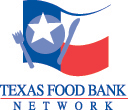
Think your stocks are taking a beating this year? Before drowning your sorrows in gravy and stuffing, consider the financial straits facing your local food bank.
National press are noting growing lines and diminished supplies at food banks everywhere - and Texas is no outlier. Judging from recent comments in the Texas media, we may have it even worse:
“Everybody that I am talking to is saying the numbers are growing and the needs are growing. ” - San Antonio
"We're seeing increased demands for our food in a way we've never seen it." - Tyler
"We've had people come in so hungry that we've had to feed them right here before they get their food." - Abilene
"Not only are we seeing more people come, but it is a higher income level of people, than it used to be." - Midland
"People are getting laid off, and they're asking for food baskets." - El Paso
"Between 33 and 40 percent of our families have been new. They have not sought services from us before." - Dallas
"We're within about 30 families of saying 'Sorry, we can't help you." - Fort Worth
"We haven't seen as hard of times as we appear to be headed toward [...] we're a little scared about that." - Dallas
"The charitable community has to make sure we operate very efficiently to get through these times. Hopefully people don't forget there are others in greater need." - Houston
"The need is huge this year." - Odessa
"Our peak days are still coming up." - Fort Worth
What's it like near you?


